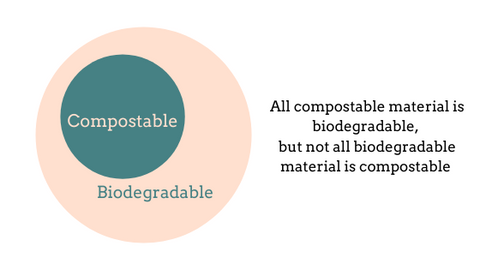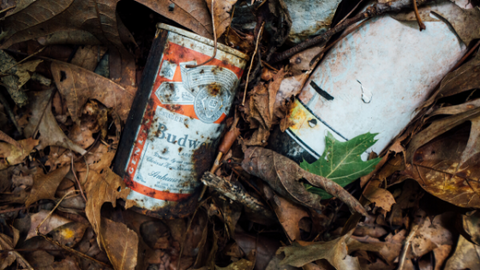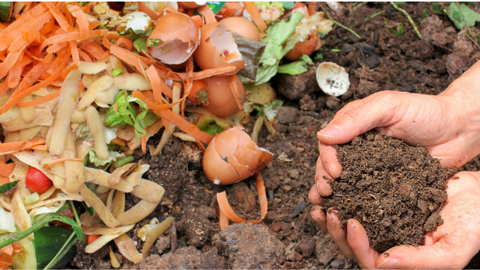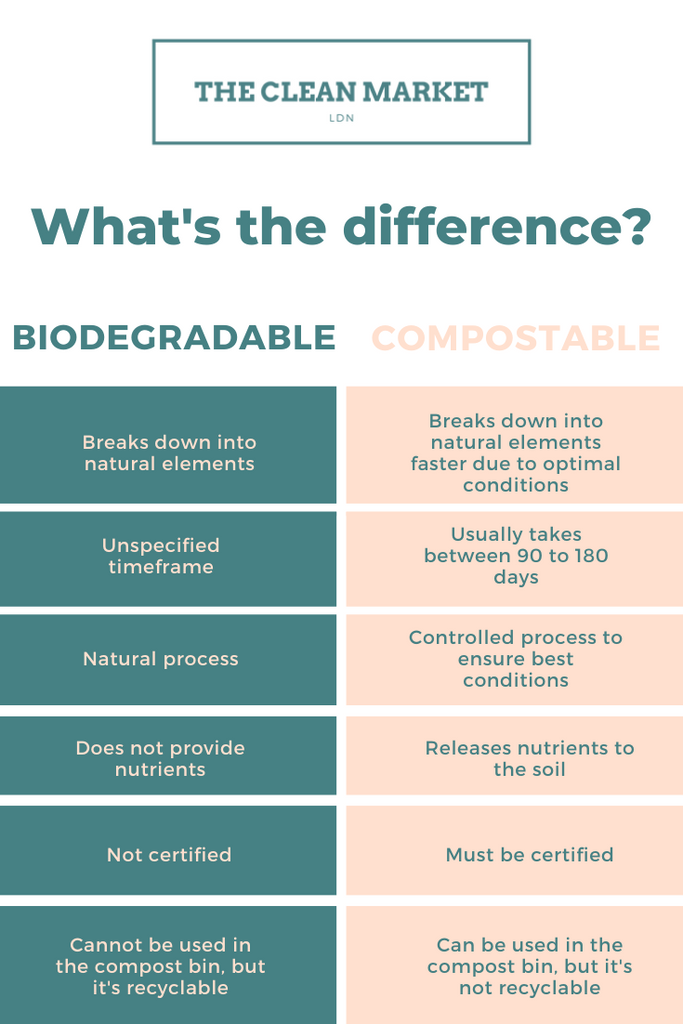Biodegradable vs Compostable, What’s The Difference?
Introduction
We often get asked the following question: ‘what’s the difference between biodegradable and compostable?’ These 2 terms are frequently mistaken, and many people don’t know exactly what they mean and how different they are. It’s true that it can be confusing because both terms are used interchangeably when they shouldn’t. All compostable products are biodegradable but not all biodegradable products are compostable.

It is important to know what these two terms imply as compostable products are not recyclable and if they are put in the recycling bin, they might contaminate the recycling process. In this post, we will try to explain what these 2 terms mean and their differences.
Biodegradable
The Merriam Webster dictionary describes the word ‘Biodegradable’ as “capable of being broken down especially into innocuous products by the action of living things (such as microorganisms)”. Similarly, the Cambridge Dictionary defines it as ‘being able to decay naturally and in a way that is not harmful’. Essentially, biodegradable is any material that breaks down into smaller pieces naturally until it disappears regardless of the time it needs to do it.

Most materials could be labelled as biodegradable as they will biodegrade if they are given enough time. However, the time it takes to biodegrade for each material will vary greatly and it can be anywhere between 3 months up to thousands of years depending on the material. In general, biodegradable materials break down into elements such as carbon dioxide, water and biomass.
Compostable
Compostable products are made of organic matter that breaks down similar to biodegradable products, but in this case, they require certain conditions to decay, and they will provide the soil with nutrients. In the paper “Building Soils for Better Crops”, Magdoff Fred describes composting as ‘an accelerated biodegradation process due to optimised circumstances.’
Compostable products must meet certain requirements regarding temperature and timeframe to be certified as compostable. In addition, there are different kinds of composting: home and industrial.
Home composting consists mainly of kitchen and garden waste, in other words, food scraps and garden materials (weeds or leaves). The result is a mixture that can be used as natural fertiliser. Although, no international standards for home composting exist currently, there are different national standards such as the TÜV Austria's OK compost home certification, which our mailers hold.

On the other hand, industrial composting is carried out in municipal composting plants that provide the optimum conditions for a safe composting. Unlike home composting, industrial composting is regulated in order to be controlled and safe.
In conclusion, biodegradation is a natural process that will break down the product in an unspecified amount of time, while compostable products are broken down in optimal conditions to accelerate the process.

